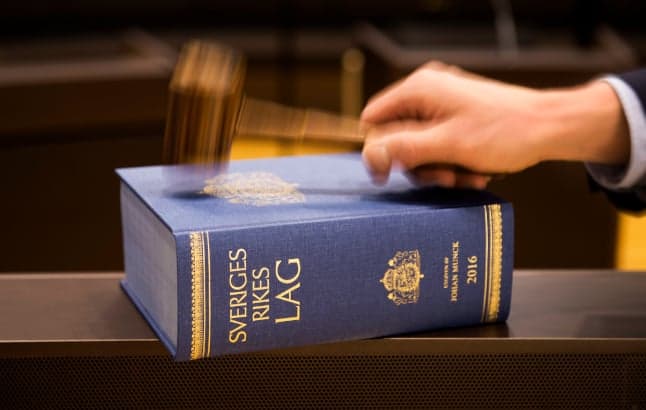Sweden grants trans woman refugee status after court appeal

A Swedish Migration Court in Gothenburg has granted asylum to a woman based on her life as a trans person – after the Migration Agency initially denied her request.
The applicant requested asylum in Sweden in 2018, but her application was rejected by the Migration Agency, which said she had not presented reliable information about her gender identity as a woman.
But the Migration Court threw out the decision, saying she had made a convincing case.
"It is unusual for an asylum seeker to invoke a gender identity as a trans person as a reason for protection. In this case, the court has unanimously agreed that the asylum seeker has presented her reflections on identifying as a woman in a clear and detailed manner," said the judge and court chairman Lars I Magnusson in a statement.
She has links to Iraq and Kuwait, but the court judged that it would not be possible for her to openly disclose her background in either country, in a ruling seen by The Local.
Magnusson added that "there is then a risk that she would face reprisals in the place where she settles as a trans person. The judgment also states that there are probably no opportunities for the woman to receive adequate government protection".
The court granted the woman refugee status, as well as a three-year residence and work permit.
The decision comes just three months after a judicial investigation by RFSL, the Swedish Federation for Lesbian, Gay, Bisexual, Transgender, Queer and Intersex (LGBTQI) rights, which criticised Swedish migration authorities for making transgender people jump through too narrow hoops to prove their gender identity.
"Asylum seekers are expected to conceal their LGBTQI identify, trans people's asylum claims are missed and the legal uncertainty is widespread in LGBTQI asylum cases," it said, after examining 2,000 decisions and court cases between 2012 and 2020.
Comments (1)
See Also
The applicant requested asylum in Sweden in 2018, but her application was rejected by the Migration Agency, which said she had not presented reliable information about her gender identity as a woman.
But the Migration Court threw out the decision, saying she had made a convincing case.
"It is unusual for an asylum seeker to invoke a gender identity as a trans person as a reason for protection. In this case, the court has unanimously agreed that the asylum seeker has presented her reflections on identifying as a woman in a clear and detailed manner," said the judge and court chairman Lars I Magnusson in a statement.
She has links to Iraq and Kuwait, but the court judged that it would not be possible for her to openly disclose her background in either country, in a ruling seen by The Local.
Magnusson added that "there is then a risk that she would face reprisals in the place where she settles as a trans person. The judgment also states that there are probably no opportunities for the woman to receive adequate government protection".
The court granted the woman refugee status, as well as a three-year residence and work permit.
The decision comes just three months after a judicial investigation by RFSL, the Swedish Federation for Lesbian, Gay, Bisexual, Transgender, Queer and Intersex (LGBTQI) rights, which criticised Swedish migration authorities for making transgender people jump through too narrow hoops to prove their gender identity.
"Asylum seekers are expected to conceal their LGBTQI identify, trans people's asylum claims are missed and the legal uncertainty is widespread in LGBTQI asylum cases," it said, after examining 2,000 decisions and court cases between 2012 and 2020.
Join the conversation in our comments section below. Share your own views and experience and if you have a question or suggestion for our journalists then email us at [email protected].
Please keep comments civil, constructive and on topic – and make sure to read our terms of use before getting involved.
Please log in here to leave a comment.